How Embark Behavioral Health Teammates Work Together To Help Clients Heal
When parents choose an Embark Behavioral Health residential treatment center for their son or daughter, they can expect the best care from the clinical and residential staff. Each member of the team works together, and their combined efforts lead to healing for the preteens, teens, and young adults they serve.
At Embark’s residential program in Benton, Tennessee, which treats preteen and teen boys, those who contribute to its caring, therapeutic environment include Clinical Director Josh Nordean.
“I’ve been a part of this residential treatment center since day one,” he said. ”I’ve watched the growth of this program and its evolution to become what it is today. I’m excited to be a part of helping plan for the future and to see what it holds.”
Additional team members who help clients heal include the program’s executive director, clinical therapist, kitchen manager, psychiatrist, and residential director.
Chris Johstoneaux, Executive Director: Being There for His Team and the Boys They Serve
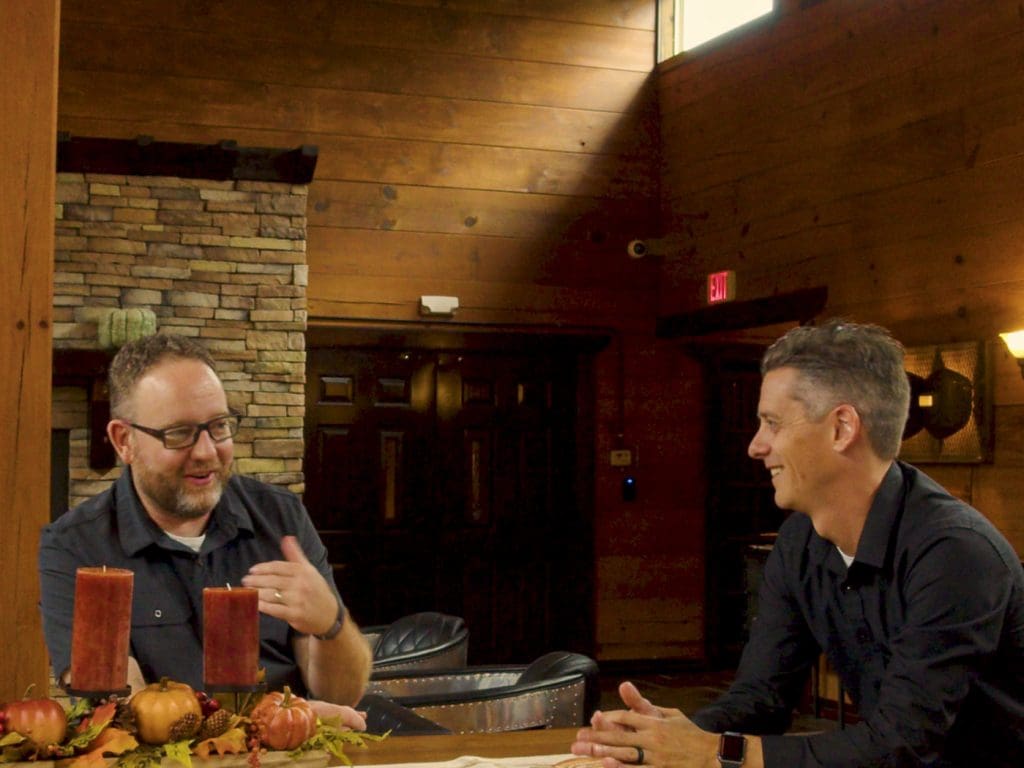
Chris Johstoneaux’s daily routine varies, as each day can be very different. Usually, he starts the day by taking a quick walk through the building and makes sure everyone has what they need for the morning. He also checks on the boys, usually eating breakfast at the time, then makes his way to different people to check on how they’re doing.
Most mornings are filled with meetings, but he typically tries to find time to see if everyone else is empowered to make the most impact as possible on the clients they serve. Johstoneaux’s responsibilities at the Tennessee treatment center can also include leading group therapy sessions and visiting the program’s school to check on how everyone is doing there.
Each day, Johstoneaux looks to answer the question “How can I help you most?” for his team.
“I want people to know that a very big part of my role is to be here to support others to be able to do their jobs, the best I can,” he said.
Johstoneaux said the best part of his job is being involved in everything. He has the opportunity to see preteens and teens change and families get better — and be a part of the healing process. He said the most rewarding part is seeing other staff at the treatment center catch hold of the vision Embark has not only for working with the program’s boys but also for its goal to lead the way in driving teen and young adult anxiety, depression, and suicide from the all-time highs of today to all-time lows by 2028.
Madeline Free, Clinical Therapist: Treating Families and Using Nature To Heal
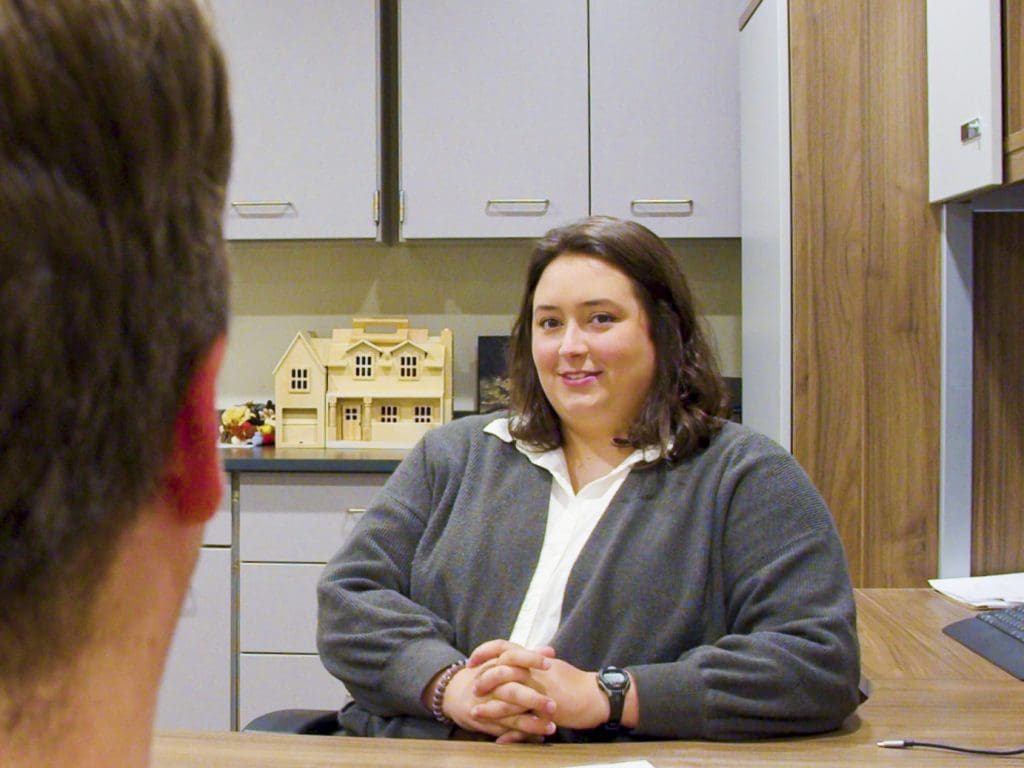
Madeline Free works weekdays and weekends. During the weekdays, she spends mornings making phone calls, speaking with insurance companies, and attending meetings. After lunch, she meets with her clients in individual and family therapy sessions.
Family sessions are mostly done through video calls since the preteens and teens the program serves are from all over the United States. Families call in while Free and the boys join from her office. Sometimes, family sessions are saved for family visit weekends so they can be done in person.
On the weekends, Free runs group therapy sessions and goes on trips with the boys. The trips normally include outdoor activities, such as rafting, hiking, and kayaking.
“I think there’s this idea that working in residential treatment means that I’m sitting in my office all day taking notes and calling insurance companies,” Free said. “Instead, I get to tell people I go kayaking and rafting because I’m with these boys all the time. It’s not an isolated experience.”
Free uses these experiences to help her clients develop coping skills.
“Nature is such a beautiful tool for therapy,” she said.
Dan Watts, Kitchen Manager: Nourishing Hearts and Minds Through Cooking
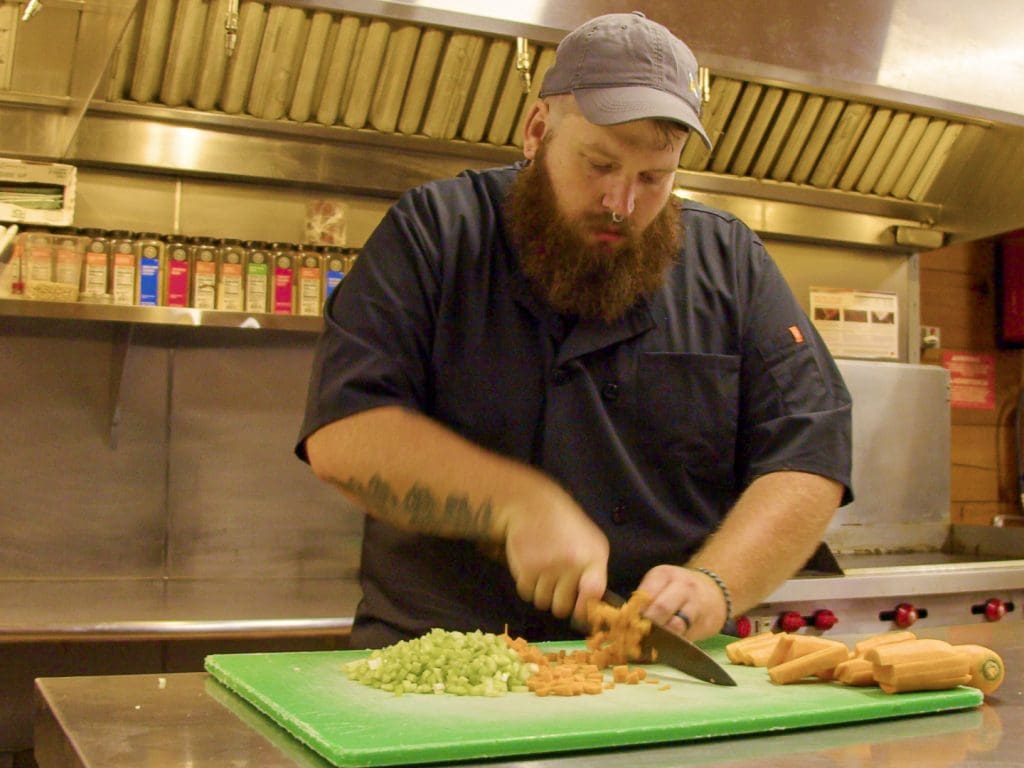
As the short-term residential treatment center’s kitchen manager, Dan Watts is responsible for planning and preparing meals and snacks.
His day begins by reviewing what tasks he has to complete and making sure everyone had breakfast. He then checks in with the residential coaching staff and therapists for any concerns, such as whether any of the boys are having a hard day or if there are problems he needs to watch for.
“If I know that, I can look out for them if they’re not eating or are hardly eating,” Watts said. “I can offer them something else to eat so they’re not also hungry on top of whatever else they’re experiencing.”
Watts spends most of his day preparing and serving meals. During his prep time, he keeps his door open for the boys to come and work or talk with him.
Having grown up helping out in the kitchen, Watts is very familiar with making mistakes while cooking. His experience was not always a great one. He has early memories of being yelled at and feeling less than a person when he made mistakes.
At the short-term residential treatment center, Watts uses a different approach. When showing the boys how to cook, he reassures them that mistakes and problems they can solve are OK.
“Something I wish everybody knew is when they work with these boys, as much as you think you are teaching them, they are teaching you,” Watts said. ”They’re teaching you how to be a better person.”
Watts said the best part of his job is working with the boys. He loves when they ask for different types of food for dinner because someone is having a bad day, allowing him to help cheer them up. He also enjoys when they come into his kitchen while he’s prepping to learn how to make a dish.
“People ask me how many kids I have, and I say I have three sons of my own, but I have 112 other boys that I care for,” Watts said. “ I see them like family, and they deserve the best and utmost care they can get.”
Dr. Cassandra Simms, Psychiatrist: Making Sure Medicine Is Just One Part of Treatment
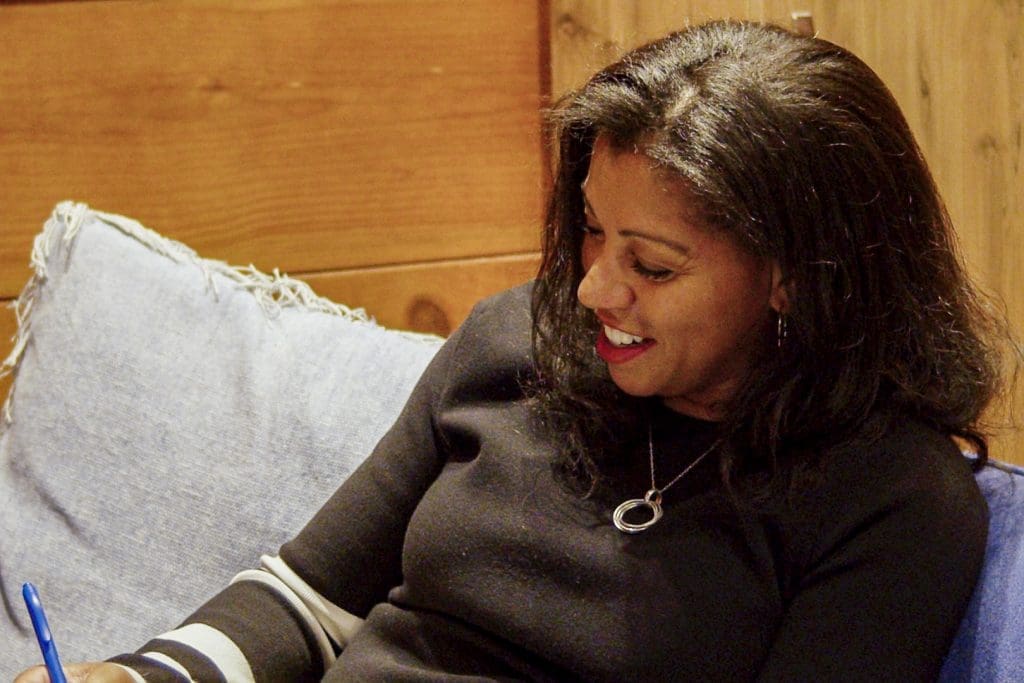
Dr. Cassandra Simms provides medication management at the short-term residential program.
When she meets with the boys, they discuss how their week is going and any mental or behavioral health struggles they’re having. She also speaks with the residential staff to see how her clients are doing in group therapy sessions. Then, Simms talks to the nurses to discuss how treatment is progressing and determine whether medication needs to be added, stopped, or adjusted.
“I don’t like for people to think that we just push pills,” she said. “I think the big thing in psychiatry is to make sure that we’re all working together, because medication will not do it all.”
Simms said for treatment to work, medication needs to be paired with therapy. Most importantly, she said, there needs to be an understanding of where a young person has been on their mental health journey, where they are now, and where they want to be.
As part of her treatment process, Simms will talk to the parents within the first week to get the perspective of their child’s mental health journey. After that, she gets the child’s story. Simms said this allows her to grasp the emotional piece of that story, which some adults in their life may have shied away from or dismissed because it‘s hard for them to accept the thought of youths having mental health issues.
“I think that’s the old myth — that our kids can’t have adult problems,” Simms said. “They can be anxious, and they can be depressed. Time has shown this is true, and our youths need us more now than ever in what now seems to be a mental health crisis affecting all ages.”
For that reason, Simms said, “The best part of my work is connecting with the boys, hearing their stories, and helping them understand their symptomatic journey.”
Simms attempts to tease out their stories with the goal of finding what might have been missing from previous treatment so she can determine how to best help them from a medication management standpoint. During this process, she tries to make sure her clients feel heard and understood — and she keeps in mind that their outside behavior can act as a smokescreen for something deeper or uncomfortable that they’re unwilling to share.
Simms said, “The best part of my job is figuring out the puzzle, but the best part of my day is when I walk into the building and the boys ask if they get to meet with me today.”
She noted that the relationship she has with them is different than what they have with their therapists because it comes from another angle.
“This is the wonderful thing about a comprehensive approach,” Simms said. “It challenges our youths from all angles of treatment.”
Josh Nordean, Clinical Director: Supporting His Team and Helping Families Connect
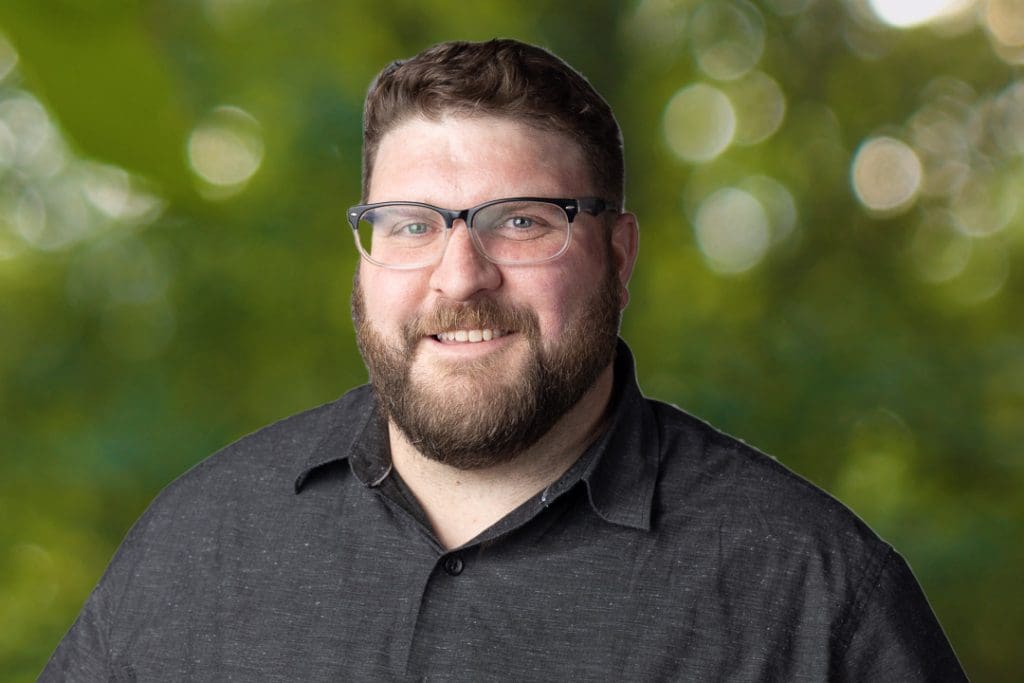
Josh Nordean’s days typically consist of a lot of variety. Some involve meetings with the treatment and leadership teams, while others center around individual and family therapy sessions. Nordean runs a group therapy session every week that every boy attends. He also helps with crisis intervention work when needed.
Nordean said his most important job duties center around supporting the clinical and residential staff, which he does daily. Those team members are the ones who sort through the issues and feelings the boys have day in and day out. As part of that process, Nordean said the staff looks at the whole family and gets to know them, which benefits not only the boys but also their parents.
“I wish more people knew that we’re more like a hardware store than a mechanic,” Nordean said. “We’re not going to fix your kid for you, but we are going to bring clarity and give you the tools needed to get to a place of change and healing.”
Nordean believes that everyone has the ability to change and heal within themselves, an ability he sees put into action on a regular basis.
“The best part of my job is that I get more of an objective point of view than most of the staff,” he said. “I get to watch the student from day one and see their journey of growth and healing.”
Nordean also gets to see the parents’ growth journey. He said while they come in exhausted and broken, he gets to watch them grow and reconnect with their children.
Jake McNelley, Residential Director: Living Out His Core Value of Service
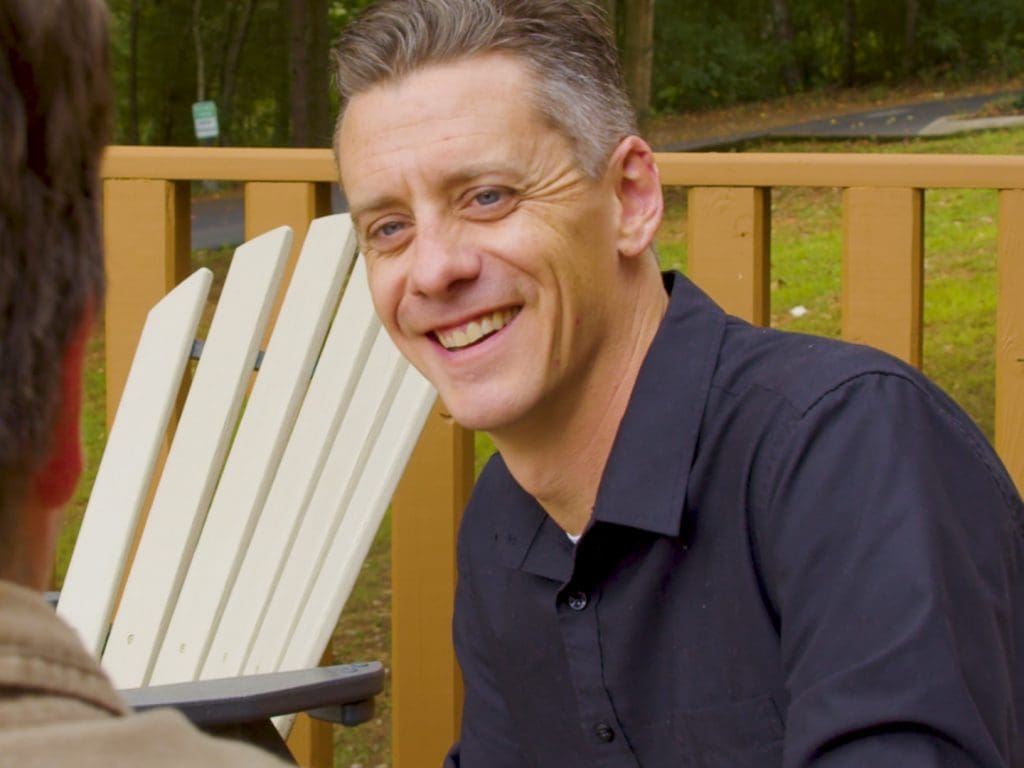
Jake McNelley’s day-to-day routine can be a bit all over the place, as he finds himself jumping into areas where he sees a need. Some days include training new or current staff, while other days, he interacts with the staff and students, making sure everyone’s feeling OK.
“I think just giving support, both to the staff and to the students, is my biggest responsibility,” McNelley said. “There are a lot of things that the coaches are doing in their day to day, so just being there for them and giving them the support they need makes a difference.”
On some days, McNelley has operated as a team leader, and on others, he’s assisted kids off campus with medical needs. Sometimes, he jumps into the kitchen and helps there.
“I like the service I get to provide,” McNelley said. “One of my core values in life is being servant minded, so I love being able to serve, whether it’s the staff, the students, the families, or the community.”
Making a Difference and Embracing Purpose
An Embark Behavioral Health short-term residential center is made up of many people with a variety of jobs. When these team members come together, sharing their expertise and compassion with each other and the families they serve, clients grow, heal, and change in ways they sometimes didn’t believe possible. The highlighted staff at Embark’s Tennessee treatment center see this happen on a regular basis.
“I wish people knew the amount of joy that can come with this job,” McNelley said. “Even in the darkest days, the staff and students still shine through, and being able to experience that just helps give me more purpose.”
Get your free guide:
6 Tips and Tactics to Help Your Child and Family Thrive Mentally, Socially, and Emotionally
